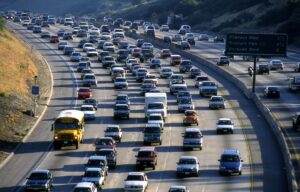Trellis (the new name for GreenBiz) once again has a wonderfully interesting summary of how AI is driving the need for additional servers which of course drives the need for additional electricity. This of course drives the need for more green energy to power these servers. Doesn’t this sound like an unsustainable plan going forward?
The water cooling for these servers poses additional challenges where the cooling systems use wet cooling towers. Here is Trellis’s summary of the situation: Data centers are thirsty, and AI is making things worse
• A vast majority of data centers use water to keep servers and networking gear from overheating. In some northern climates, operators can get away with using outside air to do that job.
• 20 percent of U.S. data centers are in regions at risk of water shortages.
• Artificial intelligence is increasing that stress, and could account for 4.2 – 6.6 billion cubic meters of water withdrawal by 2027, according to October 2023 research.
Georgia, South Carolina and Virginia lawmakers have all introduced legislation that could limit data center development, due to concerns about energy and water use.
The battle between Alabama, Florida and Georgia over water is legendary: https://chattahoochee.org/case-study/tri-state-water-conflict/ Notice that the conclusion was to open up discussions and negotiate … not litigate.
So, why are we on such a mad dash for all this AI capability? It is obviously because businesses are realizing economic benefits from its use. Well, what happens when there is no more water available?
Gee, Joel, it seems everyone has put their straw in this punchbowl of opportunity and is trying to suck out as many resources as they can before they run out! Doesn’t this sound just like the whaling industry that moved from inshore whaling to offshore and then to factory ships because they wiped out the local whale populations?
Can’t we all see these as unsustainable? Doesn’t this call for some forms of least cost planning where the full societal costs are considered, along with natural constraints such as total water use?
Those of you who remember all the arguments about externalities in the electricity planning process will just shake your head in disbelief that we are now facing similar situations because of data centers … which most of you will remember were feared countless times in the past, and especially recently with the bitcoin agendas.
Is the problem just too big to tackle because water rights are so complex? Well, if so, why do we somehow think this problem is going to solve itself?
We came precariously close to a crisis in the Western US last year, which now seems to have diminished … so now we no longer work on it as if it was still important. Haven’t we learned anything from history about the ability to sustain civilizations?
Stinkin thinkin!




